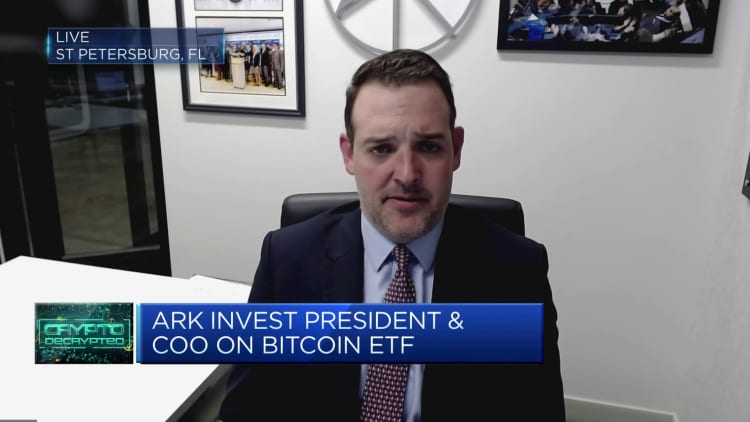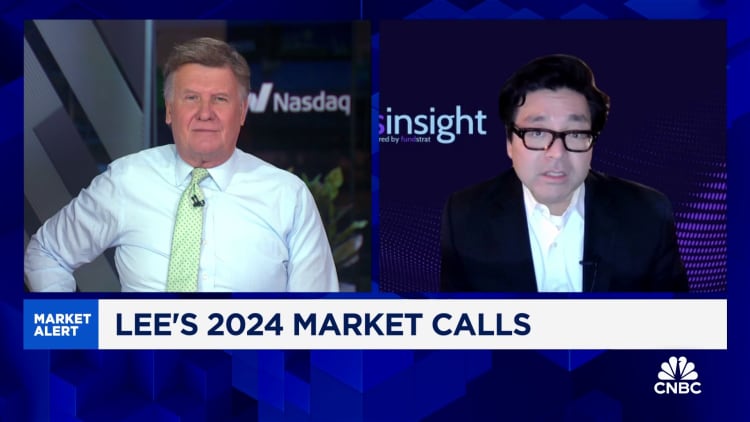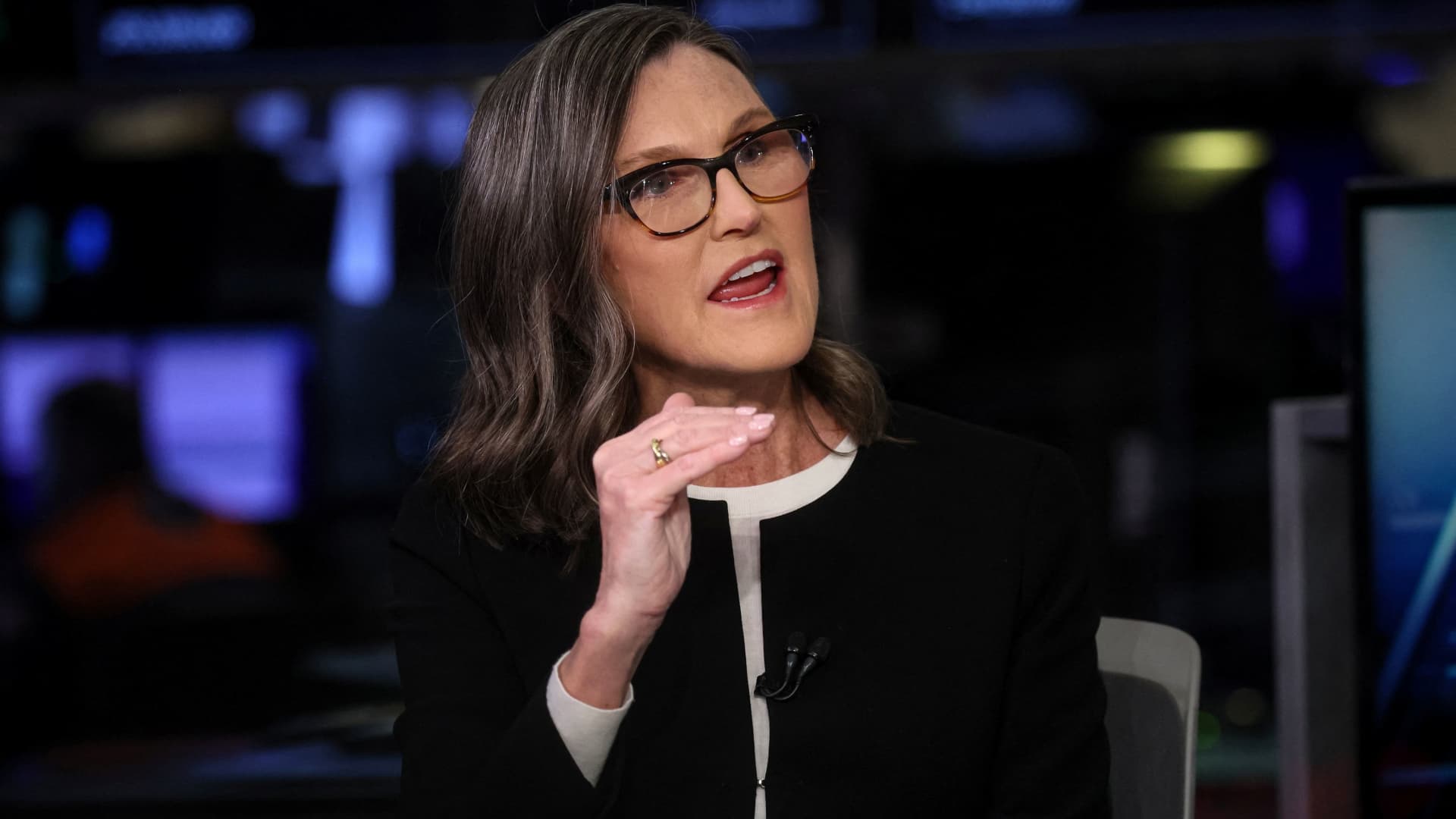Cathie Wood, CEO of Ark Invest, speaks during an interview on CNBC on the floor of the New York Stock Exchange (NYSE) in New York City, February 27, 2023.
Brendan McDermid | Reuters
Ark Invest President and COO Tom Staudt believes bitcoin is now a “public good” to which all investors should have access, as the company launches its first bitcoin exchange-traded fund.
The U.S. Securities and Exchange Commission on Wednesday approved rule changes allowing the creation of bitcoin ETFs in the U.S., paving the way for Ark and many other issuers, including BlackRock’s iShares and Fidelity, to launch their new offerings. The first funds will begin trading Thursday.
Staudt told CNBC’s “Street Signs Asia” on Thursday that the creation of a bitcoin ETF was aimed at removing “any last possible friction or pain points” that may have given investors reservations about entering the cryptocurrency asset class — including custody, gatekeeping, regulatory and cost concerns.
The new ETF from Cathie Wood’s Ark Invest and partner 21Shares will come to market with a fee of 0.21%, reportedly making it one of the cheapest offerings on the newly-created market, but will also waive fees for investors for the first six months.

The ARK 21Shares Bitcoin ETF is one of six initially waiving fees, alongside the Bitwise Bitcoin ETF, the Fidelity Wise Origin Bitcoin Trust, the WisdomTree Bitcoin Fund, the Invesco Galaxy Bitcoin ETF and the Valkyrie Bitcoin Fund. Only Bitwise’s offering will be cheaper for investors, at 0.2% once fees are introduced.
“For most, we think this is going to be far cheaper than having access to directly trade crypto, when you think about the total costs between custody, the cost of trading and spreads,” Staudt said.
“But what it’s really about is removing any of the last barriers that may have kept people from looking at the space, and now that they can access it, they can access it at what we think is a very attractive price point, we think that it is going to increase the number of people.”
He added that the low price point reflects that Ark does not see the ETF as an instrument aimed at “maximizing profit,” and noted that the company’s ETFs have had exposure to cryptocurrency since 2014.
“This is really nine years into a journey to make sure that we continue to provide the research and effectively, this has become a public good that we want to make sure all investors have access to.”

As far as making the investment case for the new asset class, Staudt pointed to the U.S. regional banking crisis in March 2023 as an example of how bitcoin could perform as both a “risk-on and a risk-off asset,” and can be “used for both inflation and in fears of deflation.”
“Of course it has been far more talked about that it is the complement to gold, the digital gold store of value, and certainly that holds up,” he said.
“This is a new asset class. We haven’t had a new asset class for financial portfolio allocation in quite some time, and with a new asset class comes lower correlation to the other asset classes previously allocated to.”
Bitcoin was trading at around $47,300 on Thursday morning, according to Coin Metrics, and the SEC’s decision has many analysts bullish about newly unlocked potential for massive gains.

Tom Lee, managing partner at Fundstrat Global Advisors, told CNBC’s “Squawk Box” on Wednesday that bitcoin could hit $150,000 in the next 12 months, and as much as $500,000 in five years’ time.
Staudt suggested the lower correlation to other asset classes meant greater diversification and potential upside for investors.
“So if you have lower correlation with strong upside potential, mathematically per unit of risk, you actually have a more diversified and actually greater upside potential for the risk that you’re taking,” he said.
“We think that’s attractive to overall portfolio allocation, even if investors only size this as relatively small allocations, it can have an outsized impact.”







